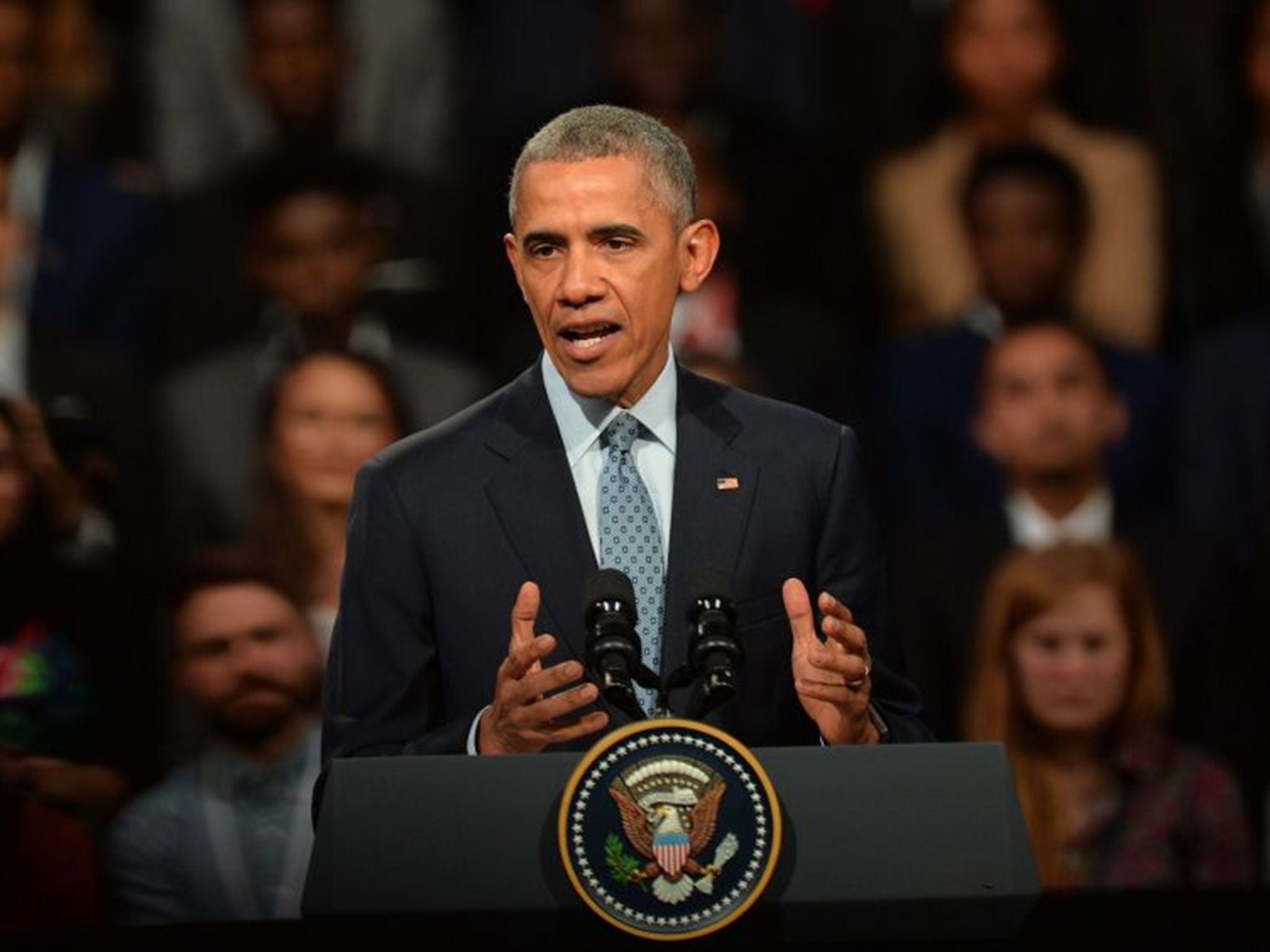Obama's use of British English makes some people suspicious
The US President's use of the word 'queue' sparked some debate

Your support helps us to tell the story
From reproductive rights to climate change to Big Tech, The Independent is on the ground when the story is developing. Whether it's investigating the financials of Elon Musk's pro-Trump PAC or producing our latest documentary, 'The A Word', which shines a light on the American women fighting for reproductive rights, we know how important it is to parse out the facts from the messaging.
At such a critical moment in US history, we need reporters on the ground. Your donation allows us to keep sending journalists to speak to both sides of the story.
The Independent is trusted by Americans across the entire political spectrum. And unlike many other quality news outlets, we choose not to lock Americans out of our reporting and analysis with paywalls. We believe quality journalism should be available to everyone, paid for by those who can afford it.
Your support makes all the difference.During his visit to the UK, President Obama delivered a passionate plea to Britain to vote to remain in the European Union in an upcoming referendum.
The American leader's intervention in the country's fierce "Brexit" row has proven remarkably divisive in London, with some politicians attacking him for being "anti-British" and others suggesting that Obama's part-Kenyan heritage led to an "ancestral dislike of the British empire."
Obama was apparently not fazed. During a joint news conference with Britain's David Cameron, he offered a stern warning of the potential consequences for the transatlantic relationship should Britain leave the E.U. However, it wasn't just Obama's warnings that gained attention among the Brits – it was a subtle stylistic shift in the way he worded those warnings.
“I think it’s fair to say maybe some point down the line, but it’s not going to happen any time soon because our focus is on negotiating with the E.U.,” Obama told reporters. “The U.K. is going to be at the back of the queue.”
Obama was simply repeating a warning made before by U.S. officials: that the U.S. is not interested in bilateral trade deals with individual countries, and that they would focus instead on deals with larger organizations like the E.U. However, the president's choice of words when making this point left many gobsmacked. The president of the United States had used the word "queue," typically used by Brits, rather than "line," considered the proper term in American English.
Some Brits quickly grew suspicious – was Obama pandering to his audience with this Britishism? Or was this a secret sign that someone British had been helping him craft his speech?
It's certainly true that queue is used relatively rarely in American English: As the Oxford English Dictionary says in its listing for the word, it is a "chiefly British" word. But this isn't exactly a smoking gun. As James Ball of Buzzfeed UK was quick to point out on Twitter, Obama has actually used the word "queue" a number of times before.
You can see it in this White House transcript from 2010, for example, when Obama says: "There were several people who were still in the queue who didn’t have a chance to speak prior to us breaking." Or in another transcript from 2011, when he says: "Could I just say that Chuck is the only guy who asked two questions — so far. So just — when I cut off here, whoever was next in the queue — I’m messing with you, Chuck." Or in yet another transcript from two years after that, when he says: "We’ve got to make sure that we have a legal immigration system that doesn’t cause people to sit in the queue for 5 years, 10 years, 15 years — in some cases, 20 years."
The instances of Obama using "queue" do seem relatively rare, but they exist and they appear to be off-the-cuff comments. And importantly, in none of the above examples was the president being used to trick British people to not act in their own interest. In fact, Obama has something of a habit of using British English. According to "Britishisms," a blog run by University of Delaware English Prof. Ben Yagoda with the aim of catching the British English that enters into American daily life, the president has also been caught saying things like "full stop," "run to ground" and "take a decision."
Copyright: Washington Post
Join our commenting forum
Join thought-provoking conversations, follow other Independent readers and see their replies
Comments